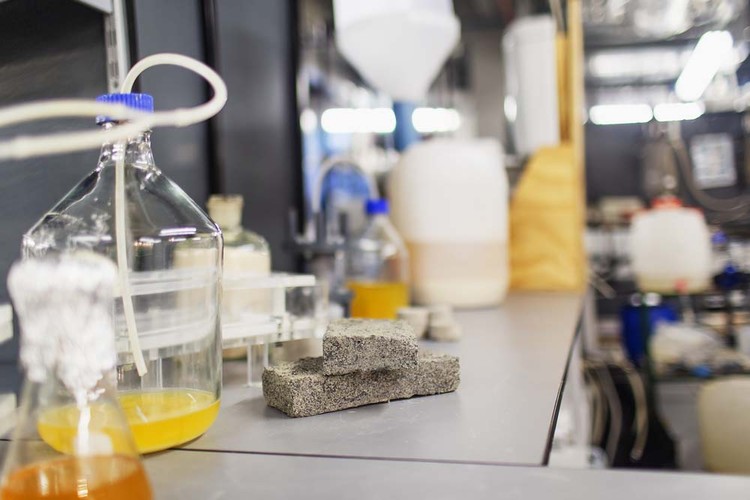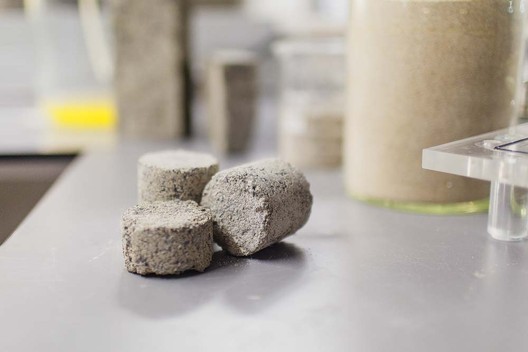
Some years ago, researchers in the United States previously tested the concept of using synthetic urine-based substances to fabricate building materials. However, new research conducted by Masters student Suzanne Lambert at the University of Cape Town, South Africa, puts forth a zero-waste process of producing urine-based bricks by using collected human urine for the first time.

The process of creating the brick is not unlike the natural process of seashell formation. The scientific process, microbial carbonate precipitation, requires that loose sand is colonized with bacteria. The bacteria produce a particular enzyme, urease, that can break down urea, a compound created in the liver when it combines ammonia molecules with carbon dioxide molecules, in urine, creating calcium carbonate as the process’s byproduct. This reaction hardens the sand and, with Lambert’s particular mold, creates a rectangular brick.

At a time when environmentally sustainable building practices are at the foundation of architectural ingenuity, engineering building materials like the bio-brick present new technologies for the future, replacing traditional building techniques. Unlike regular bricks that require a kiln that reaches temperatures of 2552 degrees Fahrenheit (1400 degrees Celsius), producing carbon dioxide, the bio-brick is produced at room temperature and can be modulated to fit a particular size mold and strength.

“If a client wanted a brick stronger than a 40% limestone brick, you would allow the material to make the solid stronger by ‘growing’ it for longer. The longer you allow the bacteria to make the cement, the stronger the product is going to be. We can optimize that process.”
– Dr. Dyllon Randall

The zero-waste process of bio-brick formation produces critical by-products such as nitrogen and potassium. In addition, 97% of the phosphorus in the urine is converted into calcium phosphate. All three ingredients can be recycled and repurposed to produce commercial fertilizers.
News via University of Cape Town











